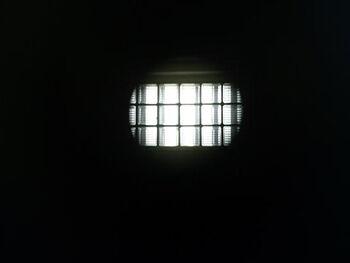University News Last updated 02 April 2015

Two of the University's leading criminologists say lessons have not been learned in the wake of the Strangeways prison riot of 1990.
And they warn that history could repeat itself 25 years on, if problems like overcrowding and a mounting sense of injustice in the prison population aren't addressed.
Professor David Wilson, founding director of the Centre for Applied Criminology at Birmingham City University, said: "I was in the prison service at the time of Strangeways and the man who started the riots, Paul Taylor, was one of the first prisoners I dealt with when opening a unit for the most disruptive prisoners in the country.
"Lord Woolf and Judge Stephen Tumim expressed great optimism in what they set out for the future but it appears to have been unrealised."
Professor Wilson's comments come as a Prison Reform Trust report reveals Strangeways remains dangerously overcrowded 25 years on from the riot which claimed the lives of two men and left 194 injured.
The trust's chairman Lord Woolf, who wrote the original raft of recommendations following Strangeways, has expressed concerns over continued overcrowding, and cites a preoccupation among politicians with winning votes and being seen to be 'tough on crime' as holding up reforms.
Professor Wilson added: "Our history is one of pain and retribution, rather than optimism and progress.
"Our prisons are about people being locked up without hope, without education or training, and maybe that's what our prisons have always been about.
"The reason why Woolf's recommendations weren't acted upon, perhaps, is that ultimately prisons have been used by both New Labour and the Conservatives to demonstrate they are being tough on crime.
"So, the more people who are locked up, the more they can be seen to be on the side of victims which seems to me to be the wrong analysis.
"It has been said that the government is in denial about this problem, but I would say it's worse than denial. I think it's fair to say that the government only allows people into prisons who aren't going to say anything critical."
Dr Charlotte Barlow, a criminologist at Birmingham City University, added: "Lord Woolf's report remains highly relevant and if we look at the state of UK prisons today, with severe levels of overcrowding, high prison numbers, extreme levels of self-harm and many prisoners having a range of mental health issues, it is clearly the case that the system remains in crisis. A key potential reason for this is due to an ongoing and bubbling sense of injustice felt by prisoners.
"We have far too many prisoners and far too few resources and so we could see a situation like Strangeways arise again in the future. Prisoners have to share cells and can be locked in them for 23 hours a day.
"Many have addiction or mental health problems and don't get the support or provision they need.
"All of this collectively leads to an ongoing sense of injustice felt by prisoners and the recent banning of legal aid for prisoners will only fuel this.
"Prison riots in reality are rare events, particularly on the level experienced at Strangeways but they are usually fuelled by a sense of prisoner injustice rather than out of control, unruly prisoners as is often believed."